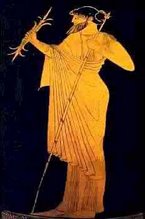
Is the coin I have attached to this article still a coin in spite of its deterioration? If so, at what point in the process of deterioration does the object cease to be a coin? If the coin remains for years in the same place until we have only a small pile of sediment, would we say we still have a coin or at this point would we say we have the remains of a coin?
Allow me this premise. What if I am left with a pile of sediment but knew the coin in its better days, visually.. Would the coin be real? Would it not be real in my memory? If you sell your car is the car still real? Yes. It simply is no longer in your visual realm. Or is it? As you image the car in your mind is that not your reality of the car?
Let’s try this. What if I select a perfectly good bronze Roman coin and melt it with a torch.. Is the coin still a coin as we observe the molten lump of bronze? We have changed the entire appearance of the coin but is the image within our mind our reality? What if I shift my presentation and tell you I found the attached image amongst a group of rusted nuts, bolts and washers? I think your opinion will suddenly change.
So is it true that perception is reality or is it true that your perception is your reality? Thank you for reading and feedback is invited. Please bookmark.. God bless.. Jerry..
Allow me this premise. What if I am left with a pile of sediment but knew the coin in its better days, visually.. Would the coin be real? Would it not be real in my memory? If you sell your car is the car still real? Yes. It simply is no longer in your visual realm. Or is it? As you image the car in your mind is that not your reality of the car?
Let’s try this. What if I select a perfectly good bronze Roman coin and melt it with a torch.. Is the coin still a coin as we observe the molten lump of bronze? We have changed the entire appearance of the coin but is the image within our mind our reality? What if I shift my presentation and tell you I found the attached image amongst a group of rusted nuts, bolts and washers? I think your opinion will suddenly change.
So is it true that perception is reality or is it true that your perception is your reality? Thank you for reading and feedback is invited. Please bookmark.. God bless.. Jerry..

1 comment:
Jerry:
This is a thoughtful philosophical commentary on the "ontology" of coins. The definition of a thing is based upon our subjective and objective interpretations of that thing. We take in whatever we can with our senses, and then make whatever "sense" (ridiculous play on words intended) we can of that thing. Sometimes, the mere word that we ascribe to a thing can be the source of the challenge. Our perception changes (or does not change) as the thing itself changes, depending upon how we define that thing. For example, if my definition of "coin" is "a quantity of metal with a mass of roughly 3 grams", it would not matter whether we melted it with torch, rolled over it with a train, or stamped it into a 17-mm disk shape with designs on the faces. I think though, that a "coin" in the commonest sense though, ceases to be a coin when we can no longer recognize it as "a metallic piece of currency or unit of monetary exchange" or something of the sort. I am thinking here of ring money, dolphin-shaped coins. I have a hard time considering aes rude as coins, and would never consider shells, beads, etc as "coins" despite the fact that they've served the same function.The item in your posted image, according to my definition, no longer bears a vestige of "coinliness" as far as I can see it. There are no markings noting it as such, and there is no deliberate shape or form. I am just digging myself a hole here though, because now I have to ponder whether a blank planchet is a "coin". Thanks for the food for thought. Keep on zapping! J.R. (jrpage221b)
Post a Comment